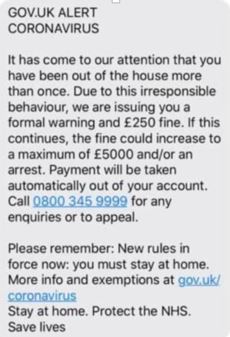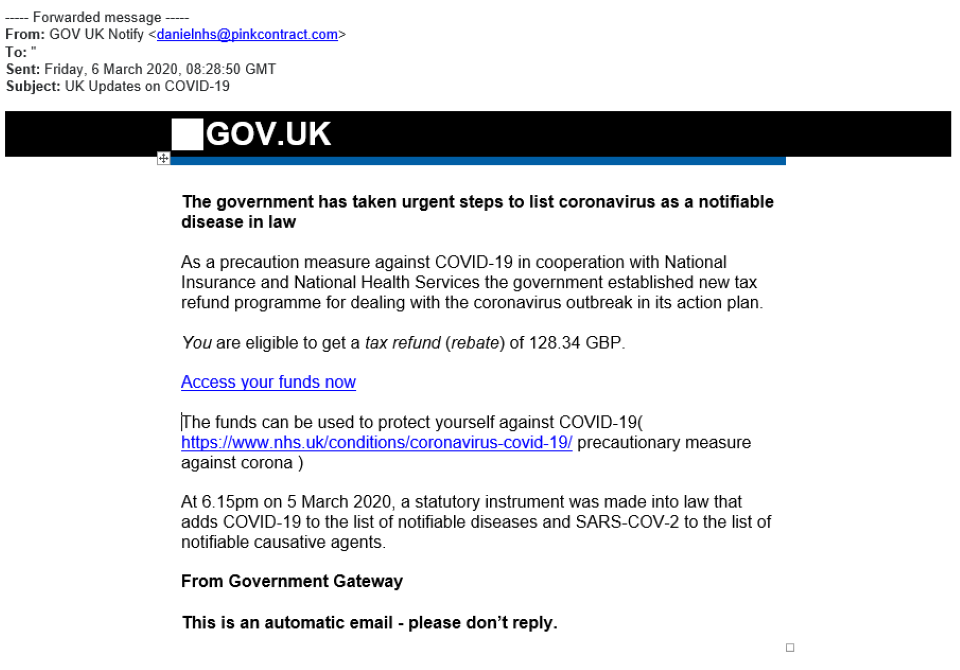How to stay one step ahead of cyber scammers...
Everything seems to have changed so quickly in the last month, but some things are still the same and there is one section of society who seem to be having the time of their lives – the scammers, fraudsters and cyber-criminal fraternity. Never knowingly missing the opportunity to exploit and turn to their advantage, cyber criminals are all over coronavirus to fleece, scam and generally make use of our fears and trust to their advantage.
Cyber-crime, in general terms, hasn’t increased in volume, however the focus of most scams we are seeing at the moment definitely have a coronavirus theme and the amount of people falling for them has grown. There has been a mass of domain names registered over the last two months which feature “Corona Virus/COVID-19” in their title. Many of these are being used for unscrupulous practices – either to harvest our personal details, such as user names and passwords, fooling us to click on links which may install malware onto a device or taking our money via illegitimate purchasing sites selling PPE for example or fake donation websites to take advantage of our generosity.
Phishing, smishing and vhishing have increased and no organisation is safe from being used and impersonated. HMRC and the newly launched furlough information website was used last week as a tool for a phishing attack; most of us will have seen the fake SMS message purporting to be from the UK Government trying to charge us a fine for leaving our homes excessively.
Nothing seems to be sacred when it comes to scam attempts... TV licensing, Netflix and many more are all brands which have been hijacked by cyber criminals to capitalise on. And boy, have they achieved that! As at 24th April 2020, a massive £2,360,727.00 has been reported to have been lost to Coronavirus fraud.
The best way to avoid these scams is being aware of what is happening and applying a bit of common sense to every unsolicited email or text you receive - spend a second to think “does that sound accurate and plausible?”... as the old adage goes, “if it sounds too good to be true, it probably is”. Much like burglars look for easy access points like unlocked doors and windows, hackers are looking for easy access points to your personal information. We take precautions in the offline world like securing our property so it’s important we take the same approach when we’re online. The comparisons on how to stay safe in the ‘real’ world on the One Digital website might help to reframe your thinking on this.
Another way to help yourself and others is to be aware of the frauds and scams doing the rounds – get this information from a trusted source. Which? have an excellent scam website and the ScamShare newsletter from Trading Standards provides a comprehensive overview, and, as it is updated weekly, always features the most current information in a fast-evolving landscape. The Scottish Government Cyber Resilience Unit issue a weekly bulletin on a Thursday which is a great source of useful information for organisations (contact alison.stone@scvo.scot to get on the distribution list) and Get Safe Online also share some great stuff for individuals. Advice for children and young people is available from Young Scot.
One thing to be mindful of is that cyber criminals are producing increasingly sophisticated and convincing messages - the ones that include an element of social engineering are very difficult to differentiate from legitimate messages from a trusted source. It is great to see an increase in cyber awareness campaigns from organisations within the financial services industry and others. The BT Tech Tips advertisement which runs in association with STV during the Early Evening News provides really accessible message for anyone who may be newly converted to the digital world.
Whilst all of this sounds a little frightening, it must be stressed that the benefits of the digital world far out way the aforementioned “cons”. The ability to communicate via digital mediums has been a massive help in ensuring we continue to connect, interact, work and thrive during the current social distancing situation. So, whether you’re navigating the online world yourself or helping others to get to grips with it, by staying alert and informed, you can keep one step ahead of the criminals and stay safe online.
NB - The main trusted source for all things cyber in the UK is the National Cyber Security Centre (NCSC). Their website has a multitude of helpful information, including a section specifically for the third sector.





